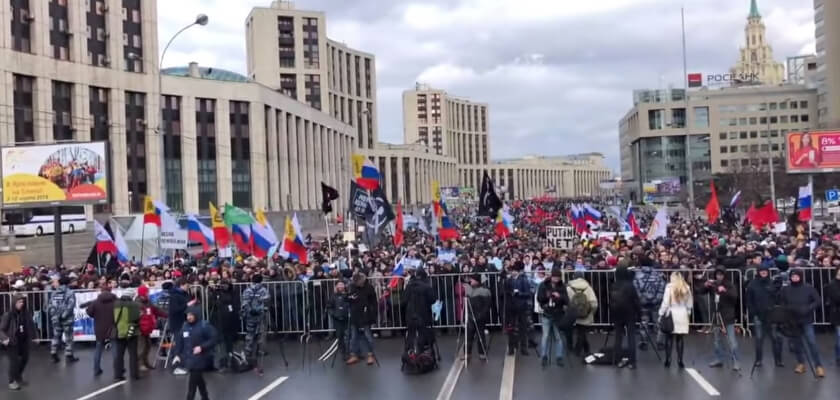Russian President Vladamir Putin has approved a new controversial law. The act will theoretically allow Russian internet infrastructures to disconnect from the World Wide Web, de facto creating a “Russian Network” – RuNet – under Kremlin’s control.
According to a state’s survey conducted by the agency VTsIOM, there are mixed opinions about the new laws, with 52% of the interviewed declaring to be against this form of “digital sovereignism”.
The new set of laws requires Russian service providers to gradually disconnect from foreign servers in order to continue with their activities and adds new filters to domestic connections. Furthermore, it sets the ground for the development of a national domain system that would enable the network to function independently from global connections. In other words, it is an alternative system to Icann, which is mostly under U.S. control.
Officially, the laws aim at ensuring security and stability of the internet in Russia and to defend the country’s network from external aggression. However, according to oppositions, it is an attempt at building a Chinese style “Great Firewall”. In case of an attack, Roskomandzor can take control and direct internet service providers to local exchange points, sealing RuNet from the inside.
The firewall will be able to block all the forbidden sources: websites included in the national blacklists, instant messaging apps like Telegram, and VPN systems. Service providers will be required to install all the necessary software and hardware and to report exactly how they are complying with the law. Terms and deadlines will be decided by Prime Minister Dimitrij Medvedev.
From January 2021 service providers will have to use new DNSs. In two years RuNet websites will be independent of Icann and whoever opposes these measures will be unable to do business as his traffic will be disconnected from Russian exchange points such as “Msk-Ix2, the 19 story building described in “The Red Web”.
Several groups advocating for civil rights are protesting against what seems to be a sort of “red button” in the hands of the Kremlin. It is destined to reduce even more the freedom of speech in a country already classed as “not free” by the Freedom House on its report on the web.
“Information,” said Aleksei Kuriny – vice president of Russia’s communist party- “will be controlled by dedicated institutions. It is a way to officially introduce censorship in the Russian Federation”.













